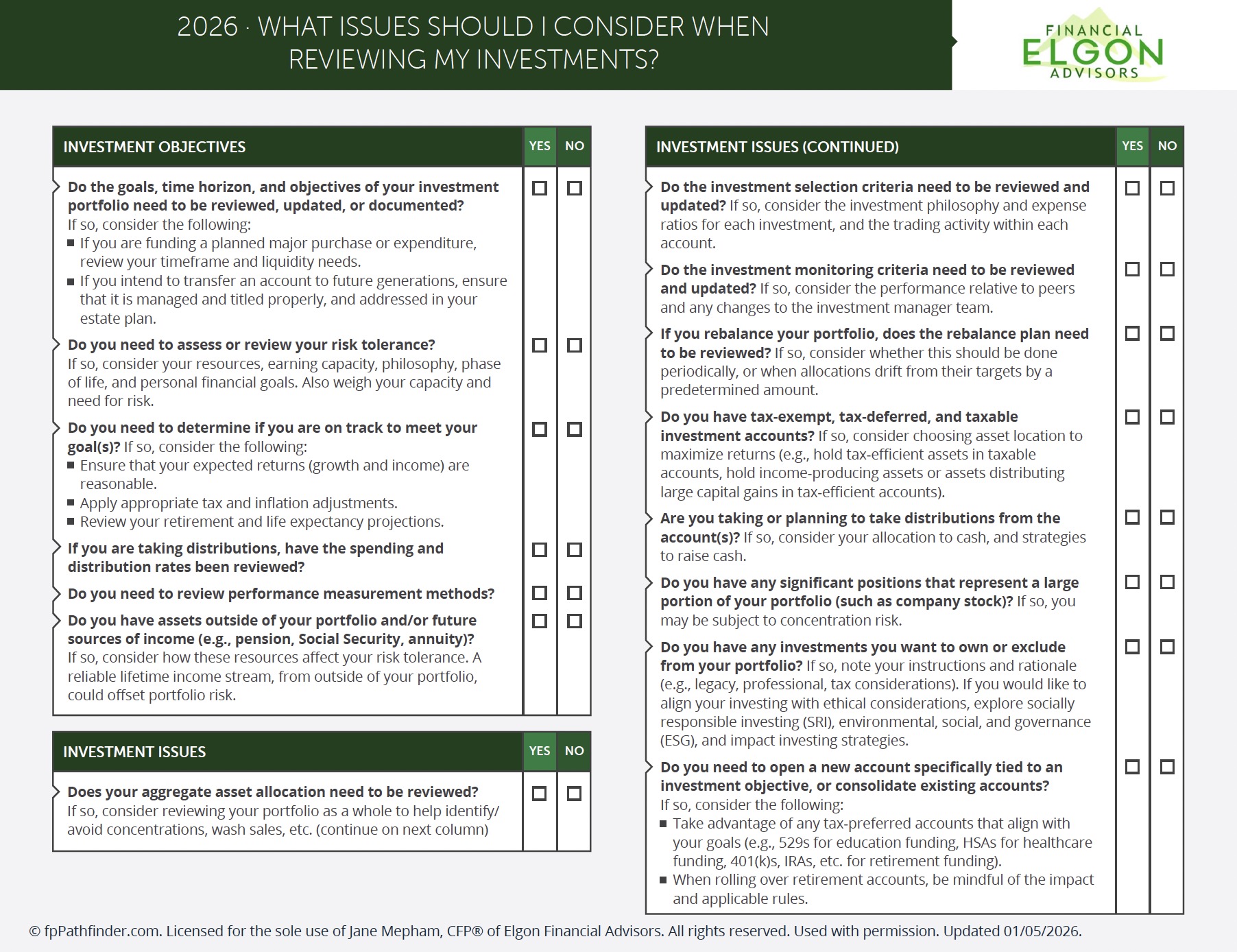Receiving an inheritance from abroad can get complicated quickly. The US enforces specific tax rules that must be followed, making it important to grasp both US and international regulations.
Whether you’re inheriting assets like real estate, business shares, or cash, understanding the legal and tax implications of what you’re receiving is essential.

This article aims to help you understand foreign inheritances, including how to correctly report and manage these assets in compliance with US tax laws. By understanding the different types of inheritances and the related tax responsibilities, you can plan ahead and avoid unforeseen tax liabilities.
Types Of Inheritance
When inheriting assets from another country, it is important to distinguish between different asset types and understand their legal and tax implications.
Each type, whether it is business ownership, real estate, or financial assets, comes with its own set of rules. This section outlines the main types of inheritances to help you manage these assets more effectively.
Company Ownership
Inheriting shares in foreign businesses comes with various legal and tax responsibilities. First, you must comply with the regulations in the country where the business is located. In the US, specific tax rules also apply.
For instance, if you inherit foreign stocks or securities not held in a financial account, you must report them on IRS Form 8938 if their value exceeds a certain threshold.
However, if these inherited foreign stocks or securities are held within a financial account, you do not need to report them on Form 8938.
Additionally, if you hold shares of a US mutual fund that invests in foreign stocks, you are not required to report either the mutual fund or its holdings on Form 8938.
Land And Real Estate
Different countries have varying inheritance tax rates and exemptions. It’s essential to be aware of how these factors might impact your specific situation.
However, in the US, there is no federal inheritance tax on real estate you inherit.
It’s important to note that in America, the property’s fair market value at the decedent’s death becomes your new cost basis (i.e., a “stepped-up” basis), affecting future capital gains taxes upon sale.
Cash And Financial Assets
Inheriting cash involves specific tax and reporting obligations. However, these only kick in on the federal level if you’re receiving a large enough amount.
The US mandates the filing of forms like Form 3520 if you receive a gift that’s greater than $100,000.
Read More: Do I Pay Tax On Gifts From Family Overseas?
You may have to pay an inheritance tax at the state level, depending on where you live in the country.
Accurate reporting is also important to avoid penalties. You will also want to consider the impact of exchange rates and potential foreign taxes on these assets.
US Taxes on Overseas Inheritance
It’s important to determine whether the United States imposes taxes on foreign assets and how to comply with all relevant reporting requirements.
This section will cover tax implications, including inheritance taxes, the responsibilities of US citizens and green card holders, and the details of selling inherited property overseas.
Inheritance Tax From Overseas
The United States does not impose a federal inheritance tax on assets received from abroad. However, state-level taxes may apply depending on where you reside.
States that have an inheritance tax include:
- Nebraska
- Pennsylvania
- New Jersey
- Maryland
- Kentucky
Please note: Iowa ended its inheritance tax in 2025; Maryland has an estate tax in addition.
What is the Tax for Selling Inherited Property Overseas?
Selling property inherited from another country may result in capital gains tax in the United States. Remember, in the US, the property’s fair market value at the decedent’s death becomes your new “stepped-up” cost basis. The gain is then calculated based on the difference between the sale price and the property’s cost basis.
Please Note: Inheriting assets without a stepped-up basis could result in high tax liabilities on gains accrued by the previous owner. While US tax law provides a stepped-up basis for inherited foreign assets, local taxes may still apply.
Some countries tax inheritances based on the recipient, not the estate, and may not recognize the step-up in basis.
Tax treaties can also affect the basis calculation for inherited assets.
Treatment Of Gifts And Inheritance By Other Countries
Different countries have distinct rules for taxing inheritances and gifts, so understanding the differences is important.
Inheritances generally refer to assets received after someone’s death, while gifts can be transferred at any time. These differences can significantly impact your tax obligations and how you manage these assets.
Please Note: If you have questions about receiving foreign gifts in cash, check out our blog “Do I Pay Taxes On Gifts From Overseas Family?” for more detailed information.
Different nations have unique ways of handling gifts and inheritances, and of taxing them. Understanding these variations is crucial as they affect how you manage and report inherited assets.
This section discusses how various countries distinguish between inheritance and estate gifts, and how the deceased’s residency can influence the inheritance process.
Inheritance vs. Estate Gifts
Countries differ significantly in how they classify and tax inheritances versus estate gifts. Some nations treat inheritances and estate gifts under the same tax framework, while others impose different tax rules for each.
Inheritance typically refers to assets passed down after someone’s death, while estate gifts can include transfers of assets both before and after death.
For example, in the United Kingdom, inheritance tax is applied on the value of the deceased’s estate above a specified threshold.
In contrast, the US does not impose a federal inheritance tax but does impose an estate tax on the transfer of the deceased’s assets.
Germany has forced heirship rules designed to protect the family and hence impact the taxation.
The differences in these tax treatments can impact how much tax is owed and who is responsible for paying it.
Moreover, understanding these distinctions is vital for accurate reporting and tax compliance. Failing to classify and report these assets correctly can result in significant penalties.
To further complicate matters, some countries may allow exemptions or provide tax reliefs for specific types of inheritances or gifts, affecting the overall tax burden.
Claiming Inheritance From Overseas
Claiming an inheritance from another country requires navigating legal and bureaucratic challenges. This section offers a step-by-step guide to claiming inheritance from overseas and emphasizes key legislative considerations.
How to Claim Inheritance from Overseas
You’ll need to work through several key steps to claim inheritance from abroad. Here’s an overview of the process at a high level:
Obtain a Death Certificate: Get an official death certificate from the country where the deceased passed away.
Gather Testamentary Documents: Collect relevant documents, such as a will or probate court orders. These documents confirm your right to inherit the assets and outline how the estate should be distributed.
Comply with Foreign Legal Requirements: Research and follow the inheritance laws in the country where the assets are located. This may involve paying any inheritance or estate taxes and fulfilling other legal obligations specific to that country.
File Necessary Forms and Documents: Ensure all required forms and documents are completed and submitted correctly (see the next section). This step is vital for legally transferring the assets to your name.
Declaring Inheritance
When you inherit assets from overseas, it’s important to properly report them to comply with US tax laws and avoid penalties.
This section covers when you need to declare an inheritance from abroad, the specific forms you must file, and the penalties for failing to comply.
Do I Need to Declare Inheritance from Overseas? What Are the Penalties If I Fail to Do So?
Understanding whether you need to report an overseas inheritance to the IRS involves recognizing specific criteria and reporting requirements. Here’s an outline to guide you through the process.
Foreign Trusts: If your inheritance is placed in a foreign trust and you are a US beneficiary, specific reporting requirements apply. The foreign trust must submit an annual information return by March 15th. If the trust fails to do so, you are responsible for filing a substitute form. Inaccurate or late filing can result in significant fines, including a penalty of $10,000 or 5% of the gross value of the inheritance, whichever is greater.
Foreign Bank Accounts: When the total value of your foreign financial accounts exceeds $10,000 at any time during the year, you must report these accounts. The due date for reporting is April 15th of the following year, with an automatic extension to October 15th if needed.
Bringing Inherited Funds to US Accounts: Generally, transferring inherited money to US bank accounts doesn’t require additional reporting. The ideal situation is to move the funds overseas to your account and then bring them into the US.
However, you must file a declaration form if you bring cash into the US. This helps the US Department of the Treasury monitor illegal activities such as money laundering.
Large Foreign Gifts: If you receive an inheritance or gift valued at over $100,000 from a foreign individual or their estate, you must inform the IRS. This rule applies even if the total amount from multiple sources exceeds $100,000 in a single year.
For example, receiving $30,000 from one foreign source and $80,000 from another within the same year necessitates reporting the combined amount.
Identify each gift over $5k, including a description, receipt date, and the gift’s FMV on that day. Failure to report can result in a fine of up to 35% of the gift’s or inheritance’s gross value.
Offshore Assets: US taxpayers living abroad must report if their offshore assets are more significant than $200,000 at the end of the year or $300,000 at any point during the year.
If living in the US, report if more than 50k on the last day of the year or 75k at any point during the tax year. Accurate and timely reporting is essential to avoid penalties, including an initial fine of $10,000, with additional fines up to $50,000 for continued non-compliance.
Reporting Requirements
Not every US taxpayer has to report foreign assets. Your reporting duty arises only if you meet certain conditions. Here’s a general guide to help you understand when you need to report your inheritance and how you will need to do so.
Complete FinCEN Form 114 (FBAR): If the total value of your foreign financial accounts surpasses $10,000 at any point during the year, you need to file FinCEN Form 114, also known as the Report of Foreign Bank and Financial Accounts (FBAR).
This form is submitted electronically to the Financial Crimes Enforcement Network (FinCEN).
Submit IRS Form 8938: For those with foreign financial assets above certain thresholds, IRS Form 8938, Statement of Specified Foreign Financial Assets, must be included with your annual federal income tax return (typically Form 1040).
This form provides comprehensive details about your foreign financial assets.
Declare Foreign Income On Your Tax Return: Income earned from foreign assets, such as interest, dividends, rental income, and capital gains, must be reported on your US tax return.
Account for Other Necessary Forms: Additional forms might be required depending on your specific situation. For instance, if you are interested in a foreign corporation, you may need to file Form 5471.
You might need to file Form 3520 or Form 3520-A for foreign trust interests.
Specific Considerations For Different Statuses
The requirements for reporting and paying taxes on an overseas inheritance differ depending on whether you are a US citizen, a green card holder, or a covered expatriate. Each status carries specific responsibilities and potential tax implications.
This section details the considerations for these statuses to help you understand your obligations and comply with the relevant laws.
US Citizens and Green Card Holders
Though there are no US taxes or restrictions on US citizens or green card holders, such individuals will still need to report their foreign inheritance to the IRS when certain thresholds are met using various forms.
Failing to file these forms can result in severe penalties, as the IRS vigilantly tracks new assets entering the US tax system and their potential income. Proper and timely reporting protects against these penalties, ensuring you stay compliant with US tax laws and avoid future entanglements.
Please Note: Refer to this article’s ‘Declaring Inheritance’ section to understand when you need to report your inheritance and what forms you will need to do so.
Covered Expatriates
A “covered expatriate” is a term used in US tax law for individuals who give up their US citizenship or long-term resident status and meet specific criteria. To qualify as a covered expatriate, an individual must meet at least one of the following expatriation conditions and pay the exit tax.
High Net Worth: Their net worth is at least $2 million when they expatriate.
High Tax Liability: Their average yearly net income tax liability over the five years prior to expatriation exceeds a specific threshold, which is adjusted annually.
Non-Compliance: They are unable to certify that they have met all US federal tax obligations for the 5 years preceding their expatriation.
Additionally, there are specific tax rules that apply to covered expatriates, which include:
An Exit Tax: Covered expatriates might be subject to an “exit tax.” This tax treats their worldwide assets as if they were sold the day before expatriation, taxing any unrealized gains. However, the first $767,000 of these gains is exempt from the tax
An Inheritance Tax on US Recipients: If a covered expatriate leaves an inheritance to a US citizen or resident, the recipient may be required to pay a special tax on the inheritance’s value. This tax may be applied at the highest gift tax rate (currently 40%). This rule ensures that the US collects tax revenue from the wealth “covered expatriates” transfer.
Practical Tips and Best Practices
Managing an overseas inheritance requires meticulous planning and compliance with both US and international tax laws. By following practical guidelines and best practices, you can handle your inherited assets more effectively and avoid common pitfalls.
This section stresses the importance of consulting with professionals and staying informed about tax law changes.
Consulting with Experts
Getting professional help is advisable when dealing with an inheritance from another country. These experts can help you navigate tax responsibilities, legal issues, and the best ways to manage your assets. Consider consulting with these professionals:
Tax Attorneys: Tax attorneys specialize in legal tax matters. They help you interpret complex tax laws related to your inherited assets, ensuring you fulfill all legal obligations.
Financial Advisors: Assist in managing inherited assets and bring in other experts if necessary. They create strategies to optimize the benefits of your inheritance while minimizing tax burdens. They will also help align your decisions with short to long-term financial goals.
Accountants: Manage detailed financial reporting and filings required by US and foreign tax authorities. Their expertise ensures that all financial documents are accurate and submitted on time.
Please note: Our financial advisory team can assist you with navigating these complexities and working with other professionals on your team. We can also recommend experts from our vetted professional network to help you manage your overseas inheritance.
Staying Informed
Tax regulations can change frequently, and staying informed helps you remain compliant and avoid penalties. Subscribing to tax updates, attending relevant seminars, or regularly consulting with your financial advisor can help you stay current.
For most people, working with the right team of professionals, such as those listed above, is the best course of action. Their job is to stay informed about certain issues and keep their clients in the loop.
FAQS On Receiving Overseas Inheritance
I have more questions on Estate and Gift Taxes
Here are a few more resources for you ( keep an eye on this, I’ll be adding more).
IRS Source: On Estate and Gift Tax FAQs
Podcast Episode with a cross-border EA: What To Do If You Receive A Gift From Overseas
I just received an inheritance from overseas and want to keep the assets there. Is that okay?
Sure, you can leave the assets there, but you still want to report them, continue reporting them on an ongoing basis, and if there are mutual funds and other investments, ensure there are no PFIC requirements. It’s also important to understand their role in your financial plan.
Let Us Assist You With Your Overseas Inheritance
Handling an inheritance from another country can be challenging, but with the proper guidance, you can manage it effectively. This post has detailed the various types of inheritance, US tax obligations, and the importance of adhering to reporting requirements.
Grasping these concepts is crucial to avoid unnecessary tax liability and penalties.
Our financial advisory team is ready to support you through every step. We walk with you on this journey, helping you navigate the tax and financial minefields likely to arise from inheriting. We’ll also help you manage the inheritance.
Consulting with our experts will help you make informed decisions that maximize your inheritance benefits and minimize risks. We’re ready to collaborate with your team of professionals or recommend professionals from our network.
If you have received an inheritance from overseas, don’t navigate this complex process alone. Contact our financial advisory team today to schedule a consultation.
We will work closely with you and any other professionals on your team or recommend experts from our vetted network to provide comprehensive support.

6 Things to Do
When Starting A Job on H-1B Visa
You are starting a new job on a work visa, there are some critical things, that will set up for financial success in the first 3-6 months. Download the free guide below for the detailed list!
We never spam. By signing up you’ll also receive access to future resources right to your inbox.
Disclaimer: This article is provided for general information and illustration purposes only. Nothing contained in the material constitutes tax advice, a recommendation for the purchase or sale of any security, investment advisory services, or legal advice. I encourage you to consult a financial planner, accountant, and/or legal counsel for advice specific to your situation. Reproduction of this material is prohibited without written permission from Jane Mepham and all rights are reserved. Read the full disclaimer here.






